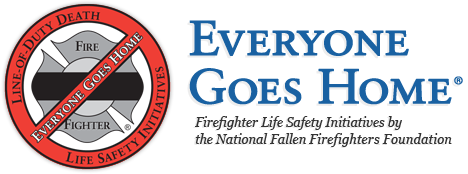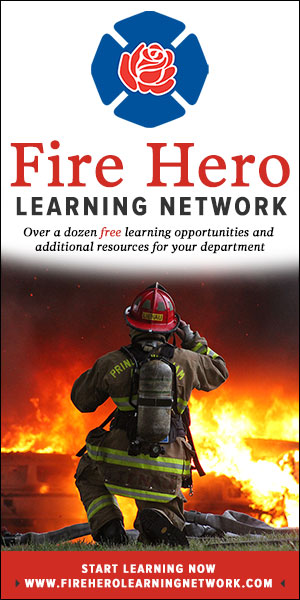The National Fallen Firefighters Foundation (NFFF) will host a virtual symposium in February and March to prioritize an agenda that promotes firefighter safety, wellness, and efficiency.
The National Fire Service Research Agenda Symposium, which is composed of researchers and practitioners, will be held online from February 15 through March 10, 2021. The NFFF is partnering with Underwriters Laboratories Firefighter Safety Research Institute (UL FSRI) to convene the program.
The National Fire Service Research Agenda is a continually evolving effort to identify areas in which research is needed to contribute to the mission of supporting the 16 Firefighter Life Safety Initiatives of the Foundation’s Everyone Goes Home® program.
“A critical component of preventing preventable line-of-duty deaths in the fire service involves research,” says Chief (Ret.) John Tippett, the Director of Fire Service Programs for the NFFF. “Every five years, the Foundation brings together a group of researchers and fire service experts to consider what research should be a priority.”
The domains to be examined fall into three categories, with a list of potential topics under each:
- Hiring, Retention and Advancement
- Effective Operations
- Health and Safety
That focus of research needed has grown over the past five years, according to Tippett. “Think about 2020 alone. There were, and continue to be, emerging threats to the fire service we did not consider in the last cycle. COVID-19, and its myriad of fire and EMS-related consequences; civil unrest, mass violence incidents, assaults on first responders, wildland fire seasons continuing to worsen, and the impact of social science and public policy on fire departments are all clamoring for investigation.”
Tippett also says that other issues worth studying include ever-increasing demand for EMS services, losses in funding revenue, cancer in the wildland fire service, and member and/or employee retention.
This year’s virtual symposium is seeking input from the research community at large to set the agenda for these and other issues. Tippett encourages such experts to attend, even if they have not previously investigated issues pertaining to the fire service. “Problem solving is best achieved by wisdom in the room,” he says.
“Collaborative research and data sharing have become imperative to addressing the new and emerging fire hazards faced by the fire service and the fire and life safety ecosystem overall. No single organization can tackle these things alone,” says Steve Kerber, Underwriters Laboratories Vice President of Research and Director of UL FSRI. “The NFFF Research Agenda Symposium is an excellent forum for convening research subject matter experts with this collective goal in mind. It directly supports our mission of advancing fire safety knowledge. We are proud to partner the NFFF in this endeavor and encourage the research community to participate.”
“The National Fallen Firefighters Foundation relies on strong collaborative relationships to assist us in accomplishing our mission,” said Troy Markel, Chairman of the Board for the NFFF. “We know firsthand the impact a line-of-duty death has on families and co-workers. Research focused on reducing deaths and injuries is worthy of our efforts and we’re grateful to UL for their support.”
The National Fallen Firefighters Foundation was created by the U.S. Congress in 1992. The Foundation is a nationally recognized non-profit dedicated to honoring the sacrifice of firefighters who fall in the line of duty, assisting their families, and delivering educational programs promoting the prevention of preventable line-of-duty deaths.
UL Firefighter Safety Research Institute (FSRI) advances fire research knowledge and develops cutting edge, practical fire service education aimed at helping firefighters stay safe while more effectively protecting people and property. Guided by a global advisory board comprised of fire service personnel, UL FSRI investigates residential, commercial, and industrial fires through full-scale testing, field-testing, and modeling to replicate actual fires faced by firefighters. Research results are shared through interactive training courses that have reached hundreds of thousands of firefighters globally. To learn more, visit ULFirefighterSafety.org. Follow UL Firefighter Safety Research Institute on Twitter, Instagram and Facebook.


